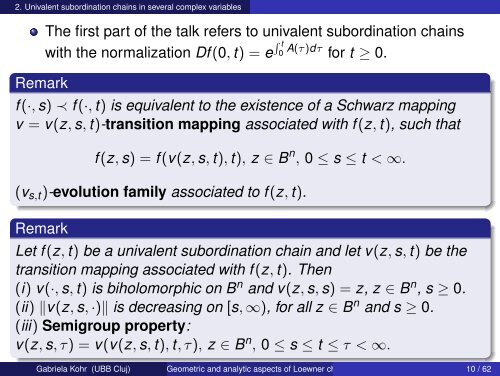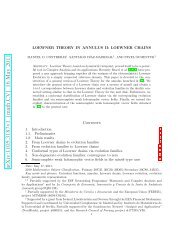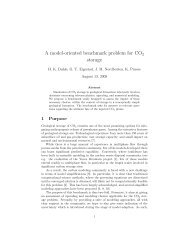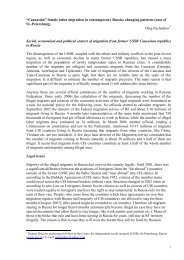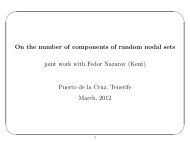Gabriela Kohr
Gabriela Kohr
Gabriela Kohr
Create successful ePaper yourself
Turn your PDF publications into a flip-book with our unique Google optimized e-Paper software.
2. Univalent subordination chains in several complex variables<br />
Remark<br />
The first part of the talk refers to univalent subordination chains<br />
with the normalization Df (0, t) = e t<br />
0 A(τ)dτ for t ≥ 0.<br />
f (·, s) ≺ f (·, t) is equivalent to the existence of a Schwarz mapping<br />
v = v(z, s, t)-transition mapping associated with f (z, t), such that<br />
f (z, s) = f (v(z, s, t), t), z ∈ B n , 0 ≤ s ≤ t < ∞.<br />
(vs,t)-evolution family associated to f (z, t).<br />
Remark<br />
Let f (z, t) be a univalent subordination chain and let v(z, s, t) be the<br />
transition mapping associated with f (z, t). Then<br />
(i) v(·, s, t) is biholomorphic on B n and v(z, s, s) = z, z ∈ B n , s ≥ 0.<br />
(ii) v(z, s, ·) is decreasing on [s, ∞), for all z ∈ B n and s ≥ 0.<br />
(iii) Semigroup property:<br />
v(z, s, τ) = v(v(z, s, t), t, τ), z ∈ B n , 0 ≤ s ≤ t ≤ τ < ∞.<br />
<strong>Gabriela</strong> <strong>Kohr</strong> (UBB Cluj) Geometric and analytic aspects of Loewner chains 10 / 62


